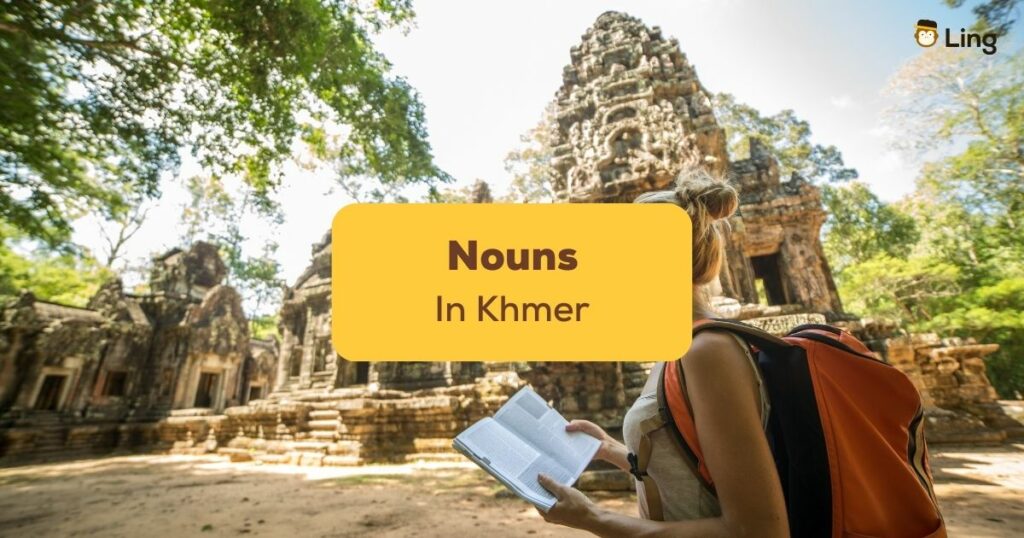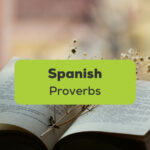Learning a new language can be as thrilling as a roller coaster ride. There are ups, downs, and exhilarating twists and turns. And let’s be honest, some parts can be downright scary, especially when you’re trying to grapple with the fundamentals, right?
So, buckle up, my fellow language explorers! We’re going on an adventure through the land of Khmer nouns, exploring their function, their structure, and how they can change the entire meaning of a sentence if used incorrectly.
Understanding Khmer Nouns
Alright, friends, hold onto your explorer hats, because we’re about to go on a trek through the terrain that is Khmer nouns. We’ve got several checkpoints to cover on our map:
What Is A Khmer Noun Anyway?
“Nouns” might have different flavors across languages, but the essence is the same – they’re the words that give names to the people, places, things, or even abstract ideas we talk about. In Khmer, just like in English, they’re the bread and butter of our sentences. But the Khmer nouns march to the beat of their own drum, and that’s what makes them fascinating!
No Plurals, No Problems
One of the coolest things about Khmer nouns is that you don’t have to worry about plurals! That’s right, no complicated changes or extra words to remember. Khmer does not have specific plural forms for nouns. You’ll usually understand whether a noun is singular or plural from the context of the sentence. Phew, one less thing to worry about!
Subtle Gender Rules
Now, let’s talk about gender. In many languages, nouns (and sometimes even adjectives) have genders – usually masculine or feminine. But you know what’s awesome about Khmer nouns? They don’t have gender rules either! So there’s no need to stress about memorizing which nouns are which gender – because they’re all just… nouns.
Counting Made Easy
You might be wondering, how do you express the quantity of items without plurals? Enter Khmer classifiers, your new best friends. Not to be confused with gender rules, a classifier is a special word used in Khmer to count or indicate the quantity of a particular noun. They’re kind of like the words “a” and “an” in English, but way cooler.
Here’s the scoop on classifiers:
- Classifier words come after the noun they’re counting.
- They can be specific to certain types of nouns or general for any noun.
- Some classifiers have standardized meanings, while others’ meanings can change depending on context.
Ready to dive in deeper? Excited to know more about these multitasking Khmer superheroes and unravel hidden gems about their formation and usage? Then put on your imaginary Indiana Jones hat and jump right in with me into the wilderness of Khmer nouns!

Common Khmer Nouns
Ready to learn some commonly used Khmer nouns? By the end of this section, you’ll be able to sprinkle your conversations with Khmer nouns like a pro. We’ve grouped these nouns into handy categories and included usage examples to illustrate each one. Excited? Let’s plunge right in!
People-Centric Nouns
No conversation is complete without mentioning people. Here’s the lowdown on the most common people-lovin’ Khmer nouns:
| English | Khmer Translation | Example Sentence | Khmer Translation |
| Person | មនុស្ស (monus) | That person has many children. | មនុស្សនោះមានបុត្រច្រើន. |
| Child | ទូរ (tor) | My child is folding clothes. | ទូរខ្ញុំកំពុងខេត្តអាវ. |
| Man | ប្រុស (proh) | That man quickly took my bag. | ប្រុសនោះភ្លាមៗអាចយកបាតីរបស់ខ្ញុំ. |
| Woman | ស្រី (srey) | The woman has many books. | ស្រីមានសៀវភៅច្រើន. |
Places Around Us
Let’s navigate the Khmer noun-scape with some common place nouns:
| English | Khmer Translation | Example Sentence | Khmer Translation |
| House | ផ្ទះ (phteas) | My house has three bedrooms. | ផ្ទះរបស់ខ្ញុំមានបីបន្ទប់គេង |
| Shop | ហាង (hang) | The shop sells yellow shoes. | ហាងលក់គប់មានពណ៌សង្សារ។ |
| School | សាលា (sala) | The school has many students. | សាលាមានសិស្សច្រើន។ |
| City | ទីក្រុង (tikrong) | My city has a lot of shops. | ទីក្រុងខ្ញប់ខ្ញុំមានតូបាហាង។ |
Things We Use
There’s a world of objects out there, and all of them call for a different noun. Buckle in – here are some basic ‘thing’ nouns you’ll want to have in your Khmer vocabulary bank.
| English | Khmer Translation | Example Sentence | Khmer Translation |
| Car | ឡាន (laan) | My car is white. | ឡានរបស់ខ្ញុំមានពណ៌ស។ |
| Book | សៀវភៅ (siev pheub) | I am reading a red book. | ខ្ញុំស្រែកសៀវភៅក្រហម. |
| Phone | ទូរស័ព្ទ (tubeusap) | My phone has many pictures. | ទូរស័ព្ទខ្ញុំមានរូបភាពច្រើន។ |
| Bicycle | កង់ទ័ពាក់ (konget-to-pak) | I ride my bicycle to work every day. | ខ្ញុំជាប្រចាំកង់ទ័ពាក់ទៅធ្វើការ។ |
| Rice | បាយ (bay) | I eat rice with chicken curry for lunch. | ខ្ញុំញ៉ាំបាយជាមួយការីសាច់មាន់សម្រាប់អាហារថ្ងៃរាត្រី។ |
| Shirt | អាវយកូន (aawyokown) | I need to buy a new shirt. | ញុំត្រូវទិញអាវយកូនថ្មី។ |

Tips For Mastering Khmer Nouns
Learning a new language is quite a journey, isn’t it? It’s a little like exploring a new city. You’ve got to figure out the lay of the land, the local hotspots, and most importantly, the language that the locals speak. But fear not, my fellow adventurers! We’ve got you covered with some practical tips to get those Khmer nouns down in no time.
Build Up That Khmer Vocabulary Every Day
You know what they say, “Practice makes perfect,” and the same mantra applies to learning new languages. If you keep introducing new Khmer nouns into your vocabulary, they will start becoming second nature before you even know it. So don’t shy away from learning new words.
Be Patient And Stay Positive
We all have those days when we feel like we’ve bitten off more than we can chew. But remember, every small progress is still progress! So if you find yourself struggling, just remember to be patient with yourself. You’re doing something incredible by learning Khmer nouns, so stay positive!
Get Immersed In The Culture
And lastly, remember that language learning isn’t just about vocabulary or grammar; it also involves familiarizing yourself with the culture that came up with the language. So, don’t just stick to the textbooks, dig deeper and uncover the culture and the traditions of the Khmer people. It will not just enrich your understanding of the Khmer language but also give you a holistic view of the culture.
Use Language Apps Or Online Platforms
Online resources are quite handy in the digital age. They’re like your personal coaches that are available 24/7. So whip out your phone and start using some language apps or get onto those online platforms to practice your Khmer nouns.
Learn Khmer With Ling
Are you trying to conquer the fascinating world of new languages? The Ling app has got you covered. We understand that language isn’t just about cramming vocabulary or forcing grammar. It’s more about understanding and immersing oneself in a new culture, creating real-life scenarios, and having fun throughout the process.
It’s time to dive into the world of language learning with Ling App. Download on App Store and Play Store today!



































































